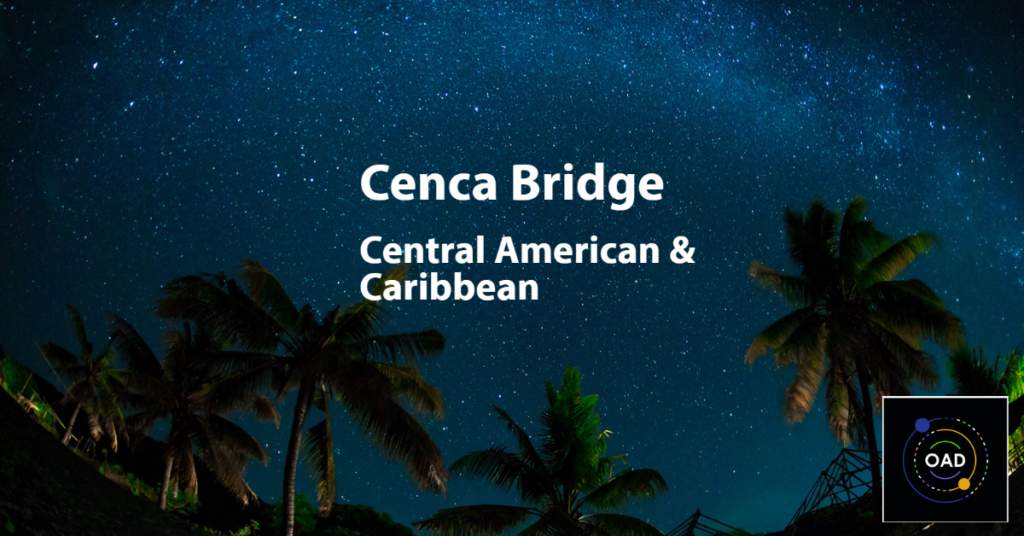The Cenca Bridge remote internship program provided astronomy research opportunity for undergraduate students from Central America and the Caribbean. The project admitted 9 students to the remote internship program, and trained them to perform astronomy research with a faculty from an established institution. Each student was paired with a mentor. The remote research internship was conducted by the group leaders/organizers, research advisors and mentors. Leaders/organizers manage the structure of the program; Research advisors typically have a PhD or MSc in astronomy or related science and direct the student projects, but are otherwise not involved in the group; Mentors a grad and undergrad students who provide supplemental guidance for students to conduct research, selected from network recommendations and past program involvement. For our remote internship, we also held an Introduction To Research workshop. We also held progress report meetings once a month per language (english and spanish) for all internship students. Finally, we concluded with the student’s final presentations of their work. We organised mentorship training for upcoming mentors, a computational workshop with introductions to python, data analysis, and data visualization, and “listening circles” sessions given by psychology expert from Nicaragua in Spanish and English for students interested in sharing experiences in academia.
Nine undergraduate students completed the Cenca Bridge remote internship program. Nine remote internship alumnus developed hands-on mentorship experience, one internship alum is developing hands-on program management and leadership skills and ten students participated in the computational workshops, developing python modules for analyzing astronomical data.
Outcomes:
- Increase in the number of applicants to participate in the remote internship (52 applications received in 2022 in comparison to 14 applications received in the Fall of 202).
- Increase in the number of participants in the remote internship (9 accepted now compared to 4 prior)
- First remote internship participants from Haiti, Dominican Republic, and Trinidad and Tobago
- Increased the number mentors

